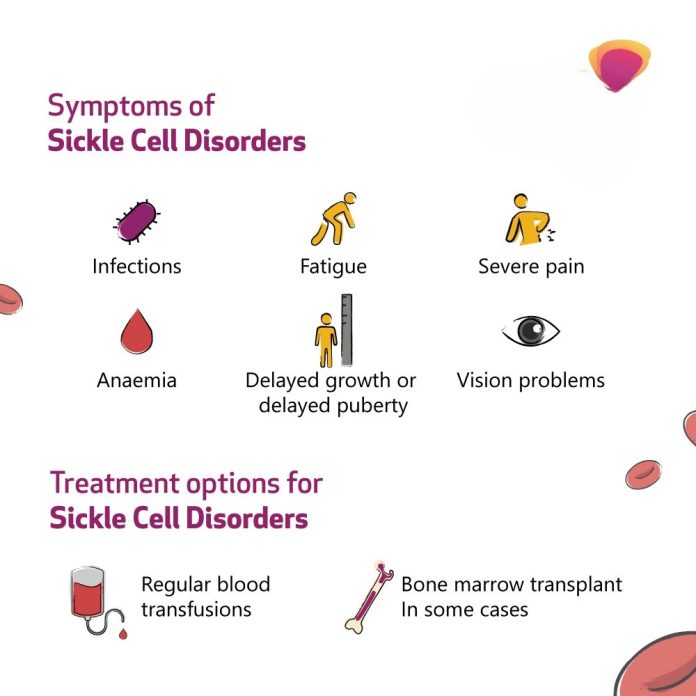The National President, Medical Women’s Association of Nigeria (MWAN), Prof. Rosemary Ugu, has urged parents to seek advanced medical treatment for children living with Sickle Cell Disease (SCD).
Ugu listed some of the advanced treatment to include hydroxyurea -glutamine, gene therapy, and bone marrow transplant, among others.
Ugu said this in an interview with the News Agency of Nigeria (NAN) on the sideline of the MWAN Executive Meeting/symposium held in Lagos.
The event was organised to update medical personnel, parents, caregivers and others on current trends in the diagnosis, treatment, and care of SCD patients.
According to her, advanced treatment can help to relieve some of the pains associated with the condition.
According to her, the high burden of sickle cell disease in Nigeria is disturbing, hence the need for better care.
She also said that there was the need for continuous education and affordable treatment options to make a significant impact.
Prof. Ogu said increased awareness and continuous education for parents, guardians, caregivers and physicians were important to improve care for patients with SCD.
“We know that there are new treatment options now for sickle cell, but people are not aware and you cannot benefit from what you don’t have knowledge of.
“Imagine a child groaning in pain because they have this occlusive crisis, meanwhile, there are drugs that can prevent those crises from happening.
“Research has shown that there are drugs that SCD patients can use that within 12 months that child, who normally will have crisis maybe every week, that child will not have any crisis at all.”
According to her, research on sickle cell has improved and there are alternative treatments now, so people don’t need to suffer
“She said: we the health professionals also have come to learn the latest trend and collaborate to improve care for sickle cell patients.
“Through this programme, I have been informed of a pharmaceutical company where drugs that cost N5,000 for treatment are produced in Oyo State,” she said.
The president said MWAN, an association of women medical personnel in the country, organises professional continuous education for its members to keep them abreast of modern trend in the profession.
According to her , the Medical Women’s Association of Nigeria advocates policies to improve health management and one of it is sickle cell management.
“ We advocate policies that help. We look at things where there are gaps. We advocate and let people know that you can do things better. You can get better outcomes with knowledge.
“ We also improve the knowledge of our members, because our members are the doctors that you see everywhere, in the clinic, in the house, in the hospital, in the health centre, any female medical doctor is a member of MWAN.
“We want them to be able to deliver the best care. We organise professional continuous education for our members, we also network among ourselves.
“There are things I may know and you are not aware. There are things you know I am not aware. But when we network, when we collaborate,
when we come together, we share experiences.
Ogu said: “we share insights, we share knowledge. So that is what we do in the medical Women’s Association.
“And so, for an association like that, we meet twice a year, physically, everyone comes together from the 36 states and the FCT to deliberate and this is one of such meetings – this EKO 2024’’.
“ So, we are here to deliberate, and the matter we have chosen this time around is sickle cell disease.
“Current trends in the management of sickle cell disease. Why did we choose it? Because we know that the burden of sickle cell in Nigeria is so high.
“Because we know that Nigeria has the highest burden of sickle cell in the world, because we know that there are new treatment options now for sickle cell, but people are not aware,’’ Ugu said.
The MWAN National president thanked Pfizer healthcare for their contribution to improving lives as well as supporting the event.
“Pfizer is giving information, they are supporting healthcare delivery, and we are so proud of them.
“ So the programme was empowered by Pfizer, and we want to say thank you to the team from Pfizer,’’ she said. (NAN)


